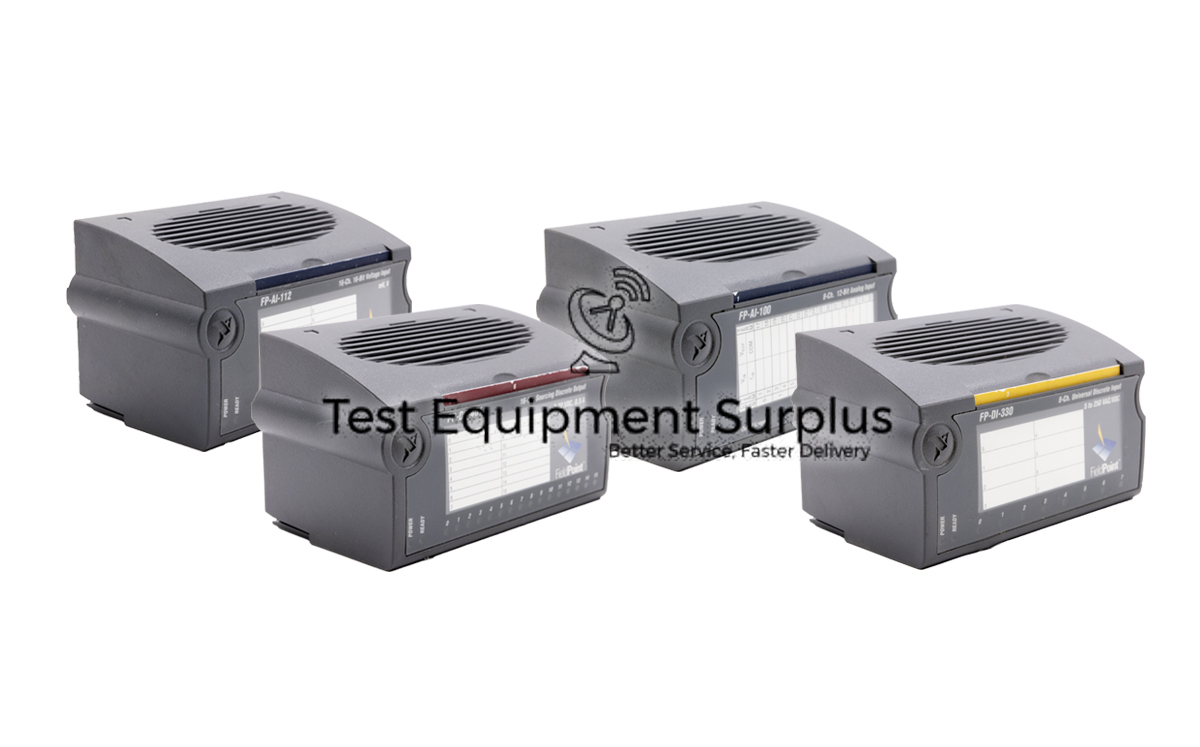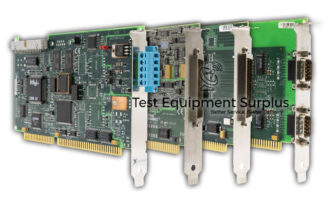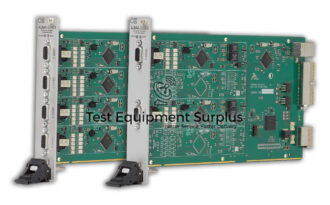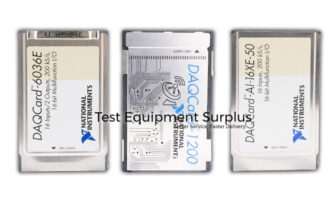Description
The National Instruments FP-TC-120 (Part Number: 777518-120) is a high-resolution, 16-bit Thermocouple Input Module designed to accommodate a variety of thermocouple types including B, J, R, K, S, N, T, and E. This module offers 8 differential input channels and supports four voltage ranges: ±25, ±50, ±100, and –20 to 80 mV, ensuring flexibility for diverse measurement requirements.
Equipped with a Delta-sigma ADC type, the FP-TC-120 provides precise measurements with an update rate of 1.13 seconds per channel. Temperature readings can be captured across a wide spectrum, ranging from –454 to 3,218 °F, 0 to 2,048 K, and –270 to 1,770 °C, making it suitable for a range of industrial applications.
The module’s input bandwidth is specified at 3 Hz and it features robust overvoltage protection of ±40 V. The input current is a minimal 35 nA typical, reaching up to 140 nA max, while the input noise is controlled at ±1 LSB peak-to-peak. For accurate temperature measurements, the FP-TC-120 utilizes linearization algorithms based on the NIST-175 standard, which aligns with the International Temperature Scale ITS-90.
Designed for reliable performance in demanding environments, the module’s power consumption details are not specified but it’s designed to efficiently manage its power needs while providing accurate data.
| Specification | Details |
|---|---|
| Part Number | FP-TC-120 |
| NI Part Number | 777518-120 |
| Input Channels | 8 differential channels |
| Thermocouple Types Supported | B, J, R, K, S, N, T, E |
| Voltage Ranges | ±25, ±50, ±100, and –20 to 80 mV |
| ADC Type | Delta-sigma |
| Resolution | 16 bits |
| Update Rate | 1.13 s/channel |
| Temperature Reading Ranges | –454 to 3,218 °F, 0 to 2,048 K, –270 to 1,770 °C |
| Input Bandwidth | 3 Hz |
| Overvoltage Protection | ±40 V |
| Input Current | 35 nA typical, 140 nA max |
| Input Noise | ±1 LSB peak-to-peak |
| Linearization Standard | NIST-175 (ITS-90) |
Question 1: What type of thermocouples is the National Instruments FP-TC-120 compatible with, and what type of ADC does it use to ensure precise measurements?
Answer 1: The National Instruments FP-TC-120 Thermocouple Input Module can accommodate a variety of thermocouple types including B, J, R, K, S, N, T, and E, and it supports four specific voltage ranges: ±25 mV, ±50 mV, ±100 mV, and –20 to 80 mV.
Question 2: What types of thermocouples is the National Instruments FP-TC-120 designed to accommodate, and what temperature range can it measure in degrees Fahrenheit, Kelvin, and Celsius?
Answer 2: The National Instruments FP-TC-120 is designed to accommodate B, J, R, K, S, N, T, and E type thermocouples and can measure temperatures ranging from –454 to 3,218 °F, 0 to 2,048 K, and –270 to 1,770 °C.
Question 3: What types of thermocouples can the National Instruments FP-TC-120 Thermocouple Input Module accommodate, and what are its specific voltage ranges?
Answer 3: The National Instruments FP-TC-120 is compatible with a variety of thermocouple types including B, J, R, K, S, N, T, and E, and it uses a Delta-sigma ADC to ensure precise measurements.
Question 4: What types of thermocouples are compatible with the National Instruments FP-TC-120 Thermocouple Input Module and what is its specified input bandwidth?
Answer 4: The National Instruments FP-TC-120 Thermocouple Input Module is compatible with B, J, R, K, S, N, T, and E type thermocouples, and it has a specified input bandwidth of 3 Hz.
Question 5: What types of thermocouples is the National Instruments FP-TC-120 compatible with, and what are its voltage range capabilities?
Answer 5: The National Instruments FP-TC-120 is compatible with B, J, R, K, S, N, T, and E type thermocouples and has voltage range capabilities of ±25, ±50, ±100, and –20 to 80 mV.




